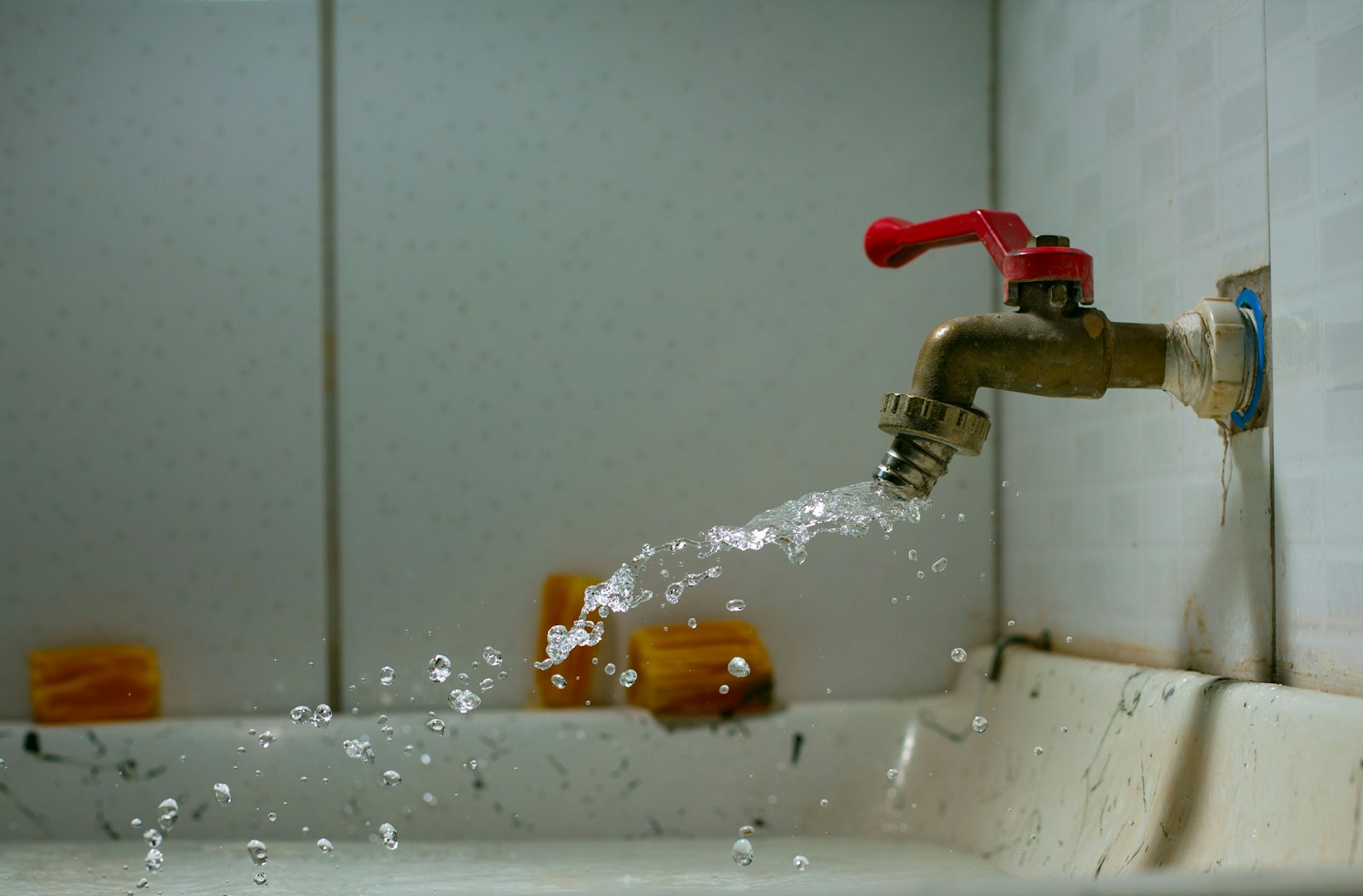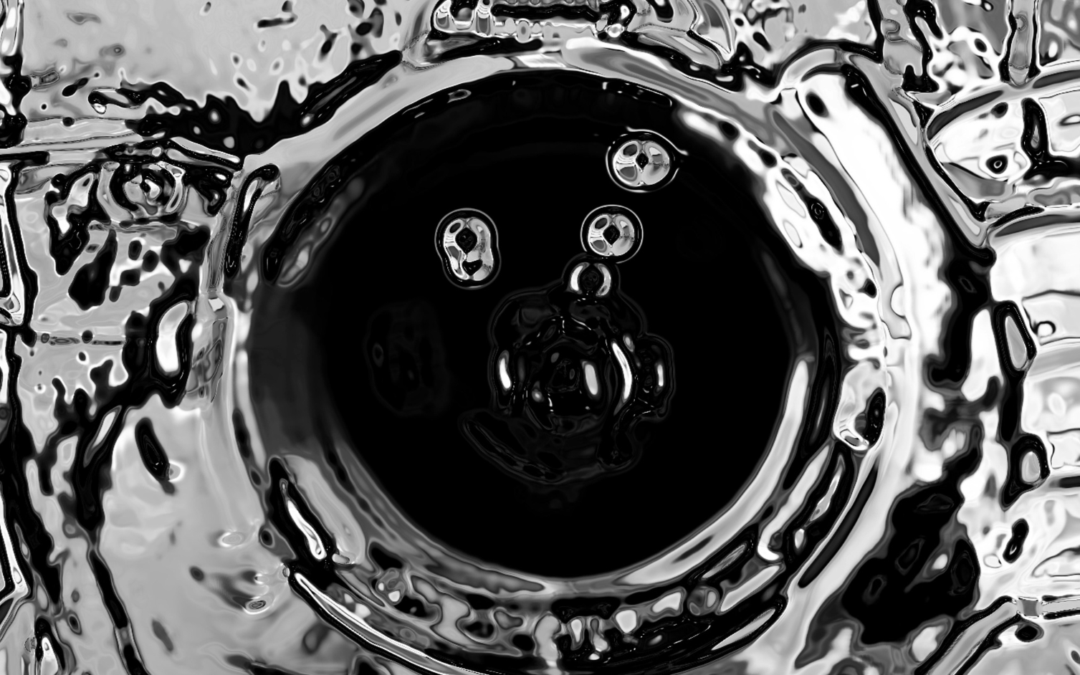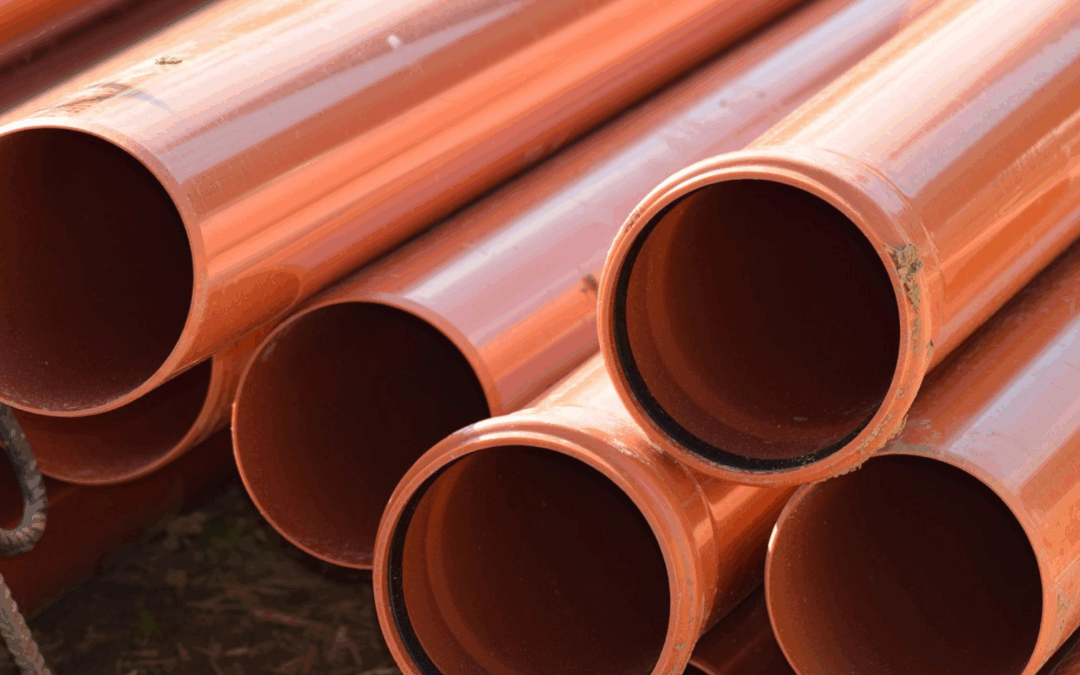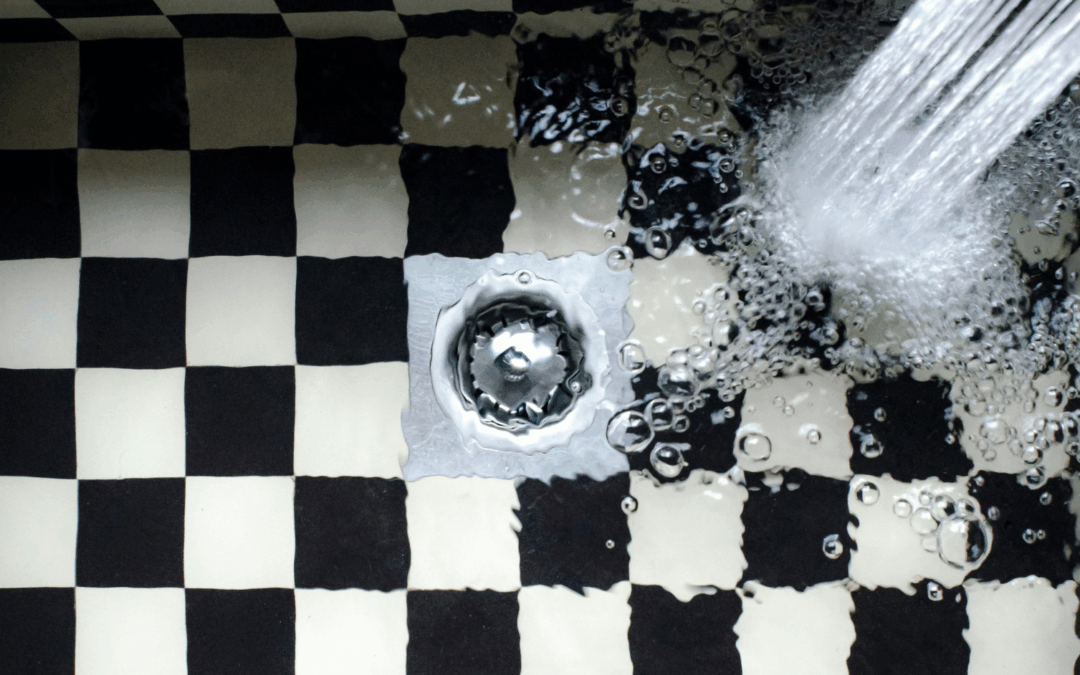When was the last time you thought about what’s happening behind your walls? Most homeowners don’t consider their plumbing system until something goes wrong—and by then, it’s often too late. A burst pipe flooding your basement or a failing water heater on a cold winter morning can cost thousands of dollars and create weeks of disruption.
A professional plumbing inspection offers a proactive solution. Rather than waiting for disaster to strike, a comprehensive plumbing inspection identifies potential problems before they become costly repairs. This preventative approach can save homeowners substantial money while ensuring their plumbing system operates efficiently for years to come.
Whether you’re buying a new home, maintaining your current property, or simply want peace of mind, understanding the value of regular plumbing inspections is essential for protecting both your investment and your wallet.
Schedule Service Online
Get a free estimate so you know what you're signing up for
"*" indicates required fields
For Emergency Services Call: 410-255-9300
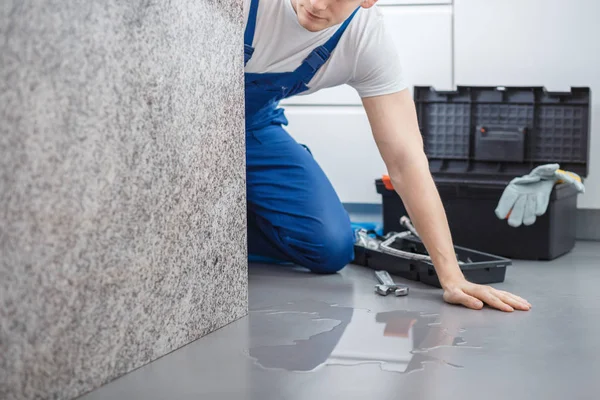
What Is a Professional Plumbing Inspection and Why Do You Need Your Plumbing Inspected?
A professional plumbing inspection goes far beyond what you might see during a typical home inspection. While a standard home inspector provides a general overview of your property’s condition, a licensed plumber conducts a comprehensive examination specifically focused on your home’s plumbing system.
During a whole house plumbing inspection, a professional plumber systematically evaluates every component of your plumbing infrastructure. This includes water supply lines, drainage systems, fixtures, and major appliances like your water heater and sump pump. The inspector examines both visible and hidden elements of your plumbing to ensure everything is working correctly.
Visual and Camera Inspection Methods
A thorough plumbing inspection typically combines visual examination with advanced diagnostic tools. The plumbing inspector will conduct a visual inspection of accessible plumbing pipes, fixtures, and connections while looking for signs of wear, corrosion, or damage.
For areas that aren’t easily accessible, many plumbing companies now use camera inspection technology. This involves inserting a small, waterproof camera into your sewer lines and drainage systems to identify blockages, root intrusion, or pipe deterioration that wouldn’t be visible during a standard visual inspection.
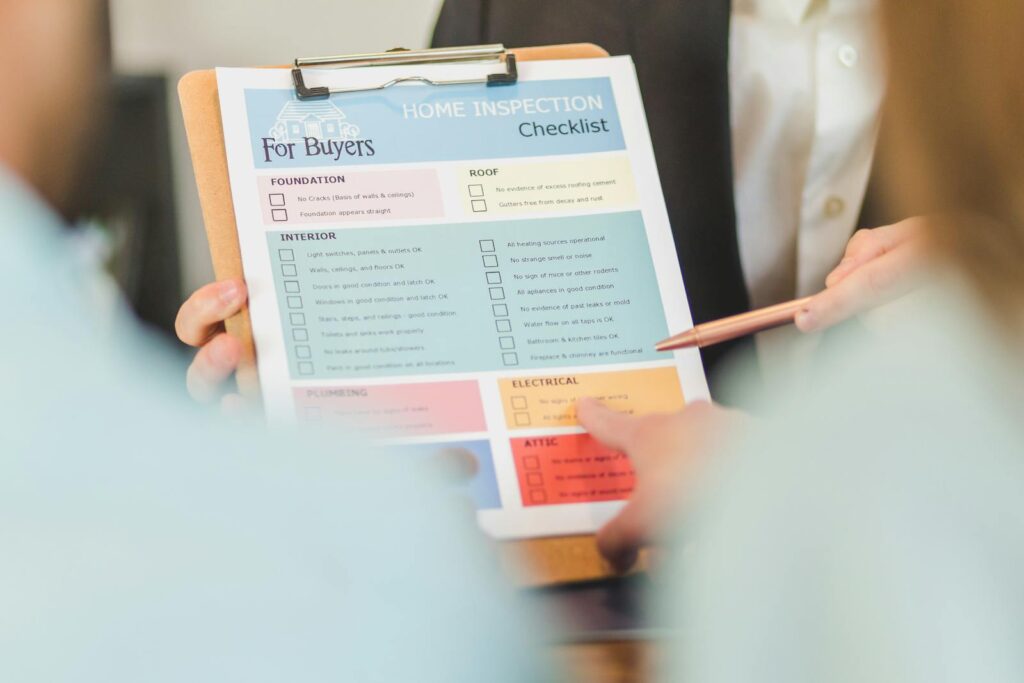
Photo by RDNE Stock project on Pexels
Key Components of a Comprehensive Plumbing Home Inspection
Understanding what a professional plumber examines during an inspection helps homeowners appreciate the thoroughness of this service. Each component plays a crucial role in your home’s overall plumbing health.
Water Supply System
Your water supply system delivers clean water throughout your home. During the inspection, the plumber checks supply lines for proper pressure, examines connections for leaks, and tests the overall functionality of your water distribution network. They’ll also verify that your water supply meets local code requirements and flows adequately to all fixtures.
Water Heater Inspection
Water heater inspection represents a critical component of any comprehensive plumbing evaluation. Whether you have a traditional tank system or a tankless water heater, the inspector examines the unit’s condition, tests safety features like pressure relief valves, and checks for signs of corrosion or inefficient operation. Regular water heater inspection can prevent sudden failures and extend your unit’s lifespan.
Drainage and Sewer Systems
Your drainage system removes wastewater from your home, making it essential for health and safety. The inspector examines sewage lines, tests drain flow rates, and looks for signs of a clogged drain or slow drainage. They’ll check that toilets flush properly and that all drains empty efficiently without backing up.
Fixtures and Appliances
All plumbing fixtures undergo careful examination during the inspection. This includes faucets, toilets, sinks, and any connected appliances. The inspector checks for leaks, proper installation, and optimal function while noting any fixtures that may need repair or replacement soon.

Photo by Alexander Grey on Unsplash
How Plumbing Inspections Prevent Costly Repairs
The primary value of regular plumbing inspections lies in their ability to identify issues before they escalate into expensive emergencies. Small problems caught early often require minimal intervention, while the same issues left untreated can cause extensive damage.
Early Detection of Leaks
Water leaks represent one of the most common and potentially destructive plumbing problems. A small leak behind a wall might go unnoticed for months, slowly causing water damage that can compromise your home’s structure. During a plumbing inspection, professionals use specialized tools to detect hidden leaks that aren’t visible to homeowners.
Catching these leaks early prevents water damage to walls, floors, and foundations. What might cost $200 to fix during an inspection could result in thousands of dollars in water damage repairs if left unaddressed.
Preventing Sewer Line Failures
Sewer line problems often develop gradually, with tree roots slowly infiltrating pipes or connections loosening over time. A camera inspection can reveal these issues before they cause a complete blockage or line failure. Addressing root intrusion or minor pipe damage during the early stages costs significantly less than emergency sewer line replacement.
Identifying Equipment Near End of Life
Plumbing equipment doesn’t last forever, but it often provides warning signs before complete failure. A professional inspection identifies water heaters, sump pumps, and other equipment approaching the end of their useful life. This allows homeowners to plan for replacements rather than dealing with emergency failures that require immediate, often more expensive solutions.
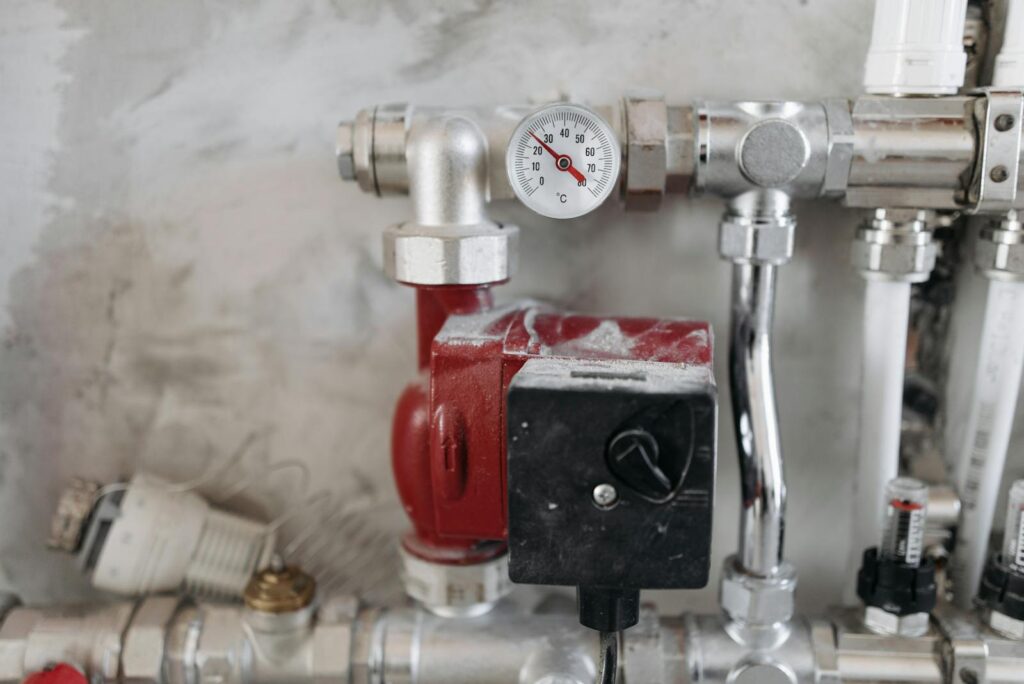
Photo by Pavel Danilyuk on Pexels
The Financial Benefits of a Professional Plumbing Inspection
Investing in regular plumbing inspections provides multiple financial advantages that extend well beyond avoiding emergency repairs.
Insurance and Warranty Protection
Many insurance policies require evidence of proper maintenance to honor claims related to water damage. Regular plumbing inspections provide documentation that you’ve maintained your plumbing system responsibly. Some insurance companies even offer discounts for homes with recent plumbing inspections, recognizing the reduced risk they represent.
Additionally, many plumbing installations come with warranties that require regular maintenance. Professional inspections help ensure warranty coverage remains valid while identifying any issues that should be addressed under warranty terms.
Energy Efficiency Improvements
A comprehensive inspection often reveals opportunities to improve your plumbing system’s efficiency. An aging water heater working harder than necessary, inefficient fixtures, or supply lines that don’t maintain proper pressure all contribute to higher utility bills. Addressing these issues can result in ongoing savings that help offset the inspection cost.
Property Value Maintenance
Well-maintained plumbing systems contribute to your home’s overall value. When selling your property, documentation of regular plumbing inspections demonstrates responsible homeownership and can prevent issues from arising during the buyer’s inspection process. This proactive approach often results in smoother transactions and better sale prices.
Regularly inspecting your plumbing system can help you plan for future maintenance needs and save you money and headaches down the road.

Photo by RDNE Stock project on Pexels
What to Expect During Your Home Plumbing Inspection
Understanding the inspection process helps homeowners prepare appropriately and maximize the value of this service.
Pre-Inspection Preparation
Before the plumbing inspector arrives, homeowners should ensure access to all areas of their plumbing system. This includes clearing space around water heaters, sump pumps, and main water lines. If you’ve noticed any plumbing issues or strange sounds, make note of them to discuss with the inspector.
The Inspection Process
A typical whole house plumbing inspection takes between two to four hours, depending on your home’s size and complexity. The licensed plumber will systematically examine each component of your plumbing system, testing fixtures, checking connections, and documenting any findings.
During the inspection, don’t hesitate to ask questions about your plumbing system or any concerns you’ve noticed. Professional plumbers can provide valuable insights about maintenance practices and early warning signs of potential problems.
Post-Inspection Report and Recommendations
Following the inspection, you’ll receive a detailed report outlining the inspector’s findings. This document typically includes information about your plumbing system’s overall health, any immediate concerns that require attention, and recommendations for future maintenance or upgrades.
The report serves as a roadmap for maintaining your plumbing system and helps you prioritize any necessary repairs or improvements based on urgency and cost considerations.

When to Schedule a Plumbing Inspection With MD Sewer and Plumbing
Several situations warrant scheduling a professional plumbing inspection with MD Sewer and Plumbing, each serving different purposes in protecting your investment.
New Home Purchases
When buying a home, a plumbing inspection provides crucial information beyond what a typical home inspection reveals. This comprehensive evaluation helps you understand exactly what you’re purchasing and identifies any immediate issues that need addressing.
Routine Maintenance
Even well-maintained homes benefit from regular plumbing inspections. Most experts recommend comprehensive inspections every two to three years, with more frequent evaluations for older homes or properties with known plumbing issues.
Before and After Major Events
Schedule inspections before undertaking major renovations that might affect your plumbing system. Similarly, after severe weather events or if you notice changes in your water pressure, drainage, or unusual sounds from your plumbing system, an inspection can identify any damage that occurred.
Choosing the Right Plumbing Home Inspector
Not all plumbing inspections provide the same level of service. Selecting the right professional ensures you receive maximum value from this investment.
Licensing and Credentials
Always choose a licensed plumber with proper insurance and bonding. Professional plumbers have the training and experience necessary to identify subtle problems that less qualified individuals might miss. Verify that your inspector belongs to relevant professional associations and maintains current licensing.
Comprehensive Service Offerings
Look for a plumbing company that offers complete inspection services, including camera inspection capabilities for sewer lines and advanced leak detection equipment. Companies with fully stocked trucks can often address minor issues immediately, saving you additional service calls.
Reputation and Experience
Research potential inspectors through online reviews, referrals from neighbors or real estate professionals, and local business bureau ratings. Companies with long-standing community presence often provide more reliable service and stand behind their work.
Helpful Links and Resources for Plumbing Inspections
Here are a few valuable links and resources to help you learn more about plumbing inspections and maintaining your home’s plumbing system:
American Society of Home Inspectors (ASHI)
Learn about standard home inspection practices, including plumbing inspection checklists and guidelines.
Discover tips for improving water efficiency, identifying leaks, and upgrading to water-saving fixtures.
The Spruce – Plumbing Tips and Tricks
Provides a wealth of plumbing advice, including DIY maintenance tips and understanding common plumbing issues.
Family Handyman – Plumbing Guides
Access detailed tutorials and expert advice on plumbing repairs and preventive maintenance.
National Association of Plumbing-Heating-Cooling Contractors (PHCC)
Explore resources from professionals dedicated to the improvement of plumbing, heating, and cooling systems.
This Old House – Plumbing Projects and Ideas
Find practical guides and inspiring projects related to plumbing, from repairs to upgrades.
These links serve as excellent starting points for homeowners and professionals alike, offering guidance on informed plumbing practices and ensuring system efficiency.
Maximizing Your Plumbing Investment
A professional plumbing inspection represents an investment in your home’s long-term health and your financial security. By identifying potential problems before they become costly repairs, maintaining your plumbing system in tip-top shape, and providing valuable insights about your home’s infrastructure, regular inspections deliver returns that far exceed their cost.
Don’t wait for plumbing problems to find you. Schedule a comprehensive plumbing inspection today and take control of your home’s plumbing health. Whether you’re dealing with an aging system, purchasing a new property, or simply want peace of mind, professional plumbing inspection provides the information and confidence you need to make informed decisions about your most important investment.
Remember, the cost of prevention always beats the price of emergency repairs. Contact a licensed plumber in your area to schedule your plumbing inspection and start protecting your home and budget from unexpected plumbing disasters.

